Resources

Critical Pedagogy and Predatory Culture is a major contribution to the radical literature on culture, identity and the politics of schooling, especially as it addresses the challenge and the promise of school and social reform through what the author calls a "critical multiculturalism." The author's approach to what he calls "predatory culture" and his exploration of recent debates over the role of public institutions and the state within such culture offers the discerning reader a unique combination of neo-marxist and post-structuralist theory--referred to by the author as "resistance of postmodernist critique." (From the Publisher)
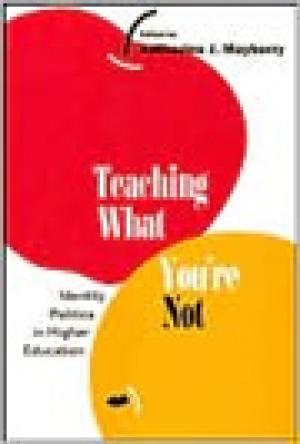
There was a time not long ago when the only complaints students levied against professors were that they assigned too much work or that their lectures were delivered in a soporific monotone. Today, radical changes in the composition of the university, the ongoing revision of canons and curricula, and the politicization of knowledge have profoundly altered the landscape, introducing an identity-based definition of credibility as an entirely new precondition of authority. As a result, questions that previous generations of educators never considered have taken on a central importance: Can whites teach African American literature effectively and legitimately? What is at issue when a man teaches a women's studies course? How effectively can a straight woman educate students about gay and lesbian history? What are the political implications of the study of the colonizers by the colonized? More generally, how does the identity of an educator affect his or her credibility with students and with other educators? In incident after well-publicized incident, these abstract questions have turned up in America's classrooms and in national media, often trivialized as the latest example of PC excess. Going beyond simplistic headlines, Teaching What You're Not broaches these and many other difficult questions. With contributions from scholars in a variety of disciplines, the book examines the ways in which historical, cultural, and personal identities impact on pedagogy and scholarship. Teaching What You're Not gets at the heart of the ongoing debates about identity politics in the academy, and society at large. (From the Publisher)
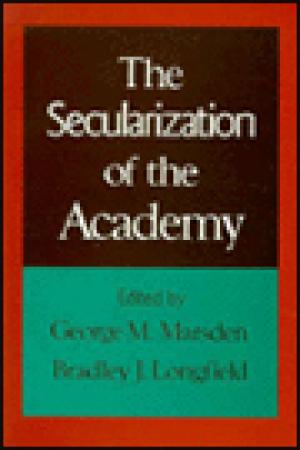
A searching exploration of a century and a half of higher education in American culture. This book will enliven, and inform, the wide-ranging discussion now taking place. Bringing together eleven new essays--most published here for the first time--on the secularization of American, British, and Canadian higher education, this text maps some of the major contours of a largely unexplored topic. It focuses on the histories of leading universities since the late nineteenth century, analyzing the transition from an era when organized Christianity and its ideals had a major role in leading institutions of higher education to an era when they have almost none. This book is an important resource for students of religion and the history of education. (From the Publisher)
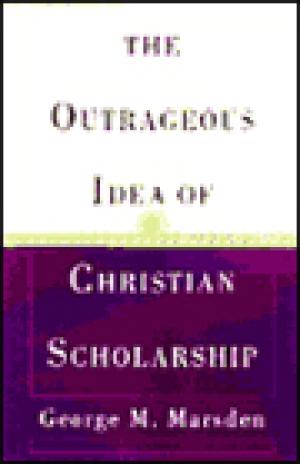
At the end of his 1994 book, The Soul of the American University, George Marsden advanced a modest proposal for an enhanced role for religious faith in today's scholarship. This "unscientific postscript" helped spark a heated debate that spilled out of the pages of academic journals and The Chronicle of Higher Education into mainstream media such as The New York Times, and marked Marsden as one of the leading participants in the debates concerning religion and public life. Marsden now gives his proposal a fuller treatment in The Outrageous Idea of Christian Scholarship, a thoughtful and thought-provoking book on the relationship of religious faith and intellectual scholarship. More than a response to Marsden's critics, The Outrageous Idea of Christian Scholarship takes the next step towards demonstrating what the ancient relationship of faith and learning might mean for the academy today. Marsden argues forcefully that mainstream American higher education needs to be more open to explicit expressions of faith and to accept what faith means in an intellectual context. Contemporary university culture is hollow at its core, Marsden writes. Not only does it lack a spiritual center, but it is without any real alternative. He argues that a religiously diverse culture will be an intellectually richer one, and it is time for scholars and institutions to take the intellectual dimensions of their faith seriously and become active participants in the highest level of academic discourse. (From the Publisher)
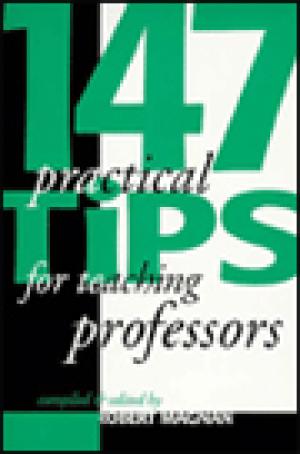
Whether you're new to teaching or an experienced veteran, this is a book you'll want to keep handy. From pre-term activities right through final exams, grading, and evaluation, 147 Practical Tips covers all the important phases of the teaching process. Educators use 147 Practical Tips for a quick idea to spice up a class. Teaching and learning centers keep shelf copies as a reference for faculty and teaching assistants. And Chairs and Deans give the book to their faculty during orientation. Take advantage of the special pricing to the right so your colleagues can share these teaching tips. (From the Publisher)
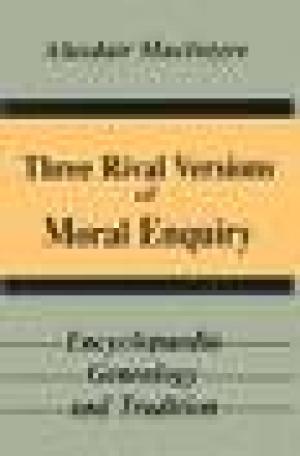
Alasdair MacIntyre—whom Newsweek has called "one of the foremost moral philosophers in the English-speaking world"—here presents his 1988 Gifford Lectures as an expansion of his earlier work Whose Justice? Which Rationality? He begins by considering the cultural and philosophical distance dividing Lord Gifford's late nineteenth-century world from our own. The outlook of that earlier world, MacIntyre claims, was definitively articulated in the Ninth Edition of the Encyclopaedia Brittanica, which conceived of moral enquiry as both providing insight into and continuing the rational progress of mankind into ever greater enlightenment. MacIntyre compares that conception of moral enquiry to two rival conceptions also formulated in the late nineteenth century: that of Nietzsche's Zur Genealogie der Moral and that expressed in the encyclical letter of Pope Leo XIII Aeterni Patris. The lectures focus on Aquinas's integration of Augustinian and Aristotelian modes of enquiry, the inability of the encyclopaedists' standpoint to withstand Thomistic or genealogical criticism, and the problems confronting the contemporary post-Nietzschean genealogist. MacIntyre concludes by considering the implications for education in universities and colleges. (From the Publisher)
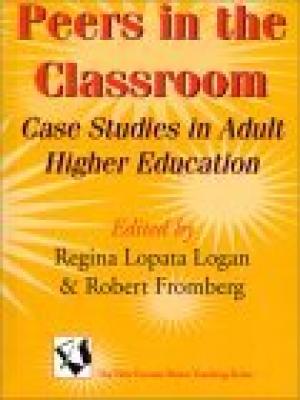
From one student's off hand remark, the idea of a casebook for use in adult education grew into a reality. Regina Lopata Logan and Robert M. Fromberg have collected twenty cases representing various experiences of faculty, students, and administrators which, while not necessarily representing historical facts, are all true. These cases convey a sense of the dynamism and complexity that educators of adults and adult students experience when they return to school in the midst of busy adult roles and responsibilities. This is an ideal workbook for those involved in higher education, especially faculty developers, deans, department chairs, or anyone else who teaches about adults in the classroom. (From the Publisher)
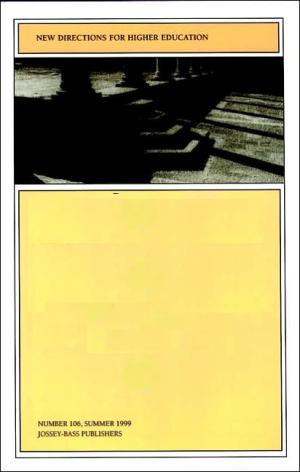
Part-time and temporary faculty now constitute a majority of all those teaching in colleges and universities. This volume presents analyses of the changes in academic work, in faculty careers, and in the economic conditions in higher education that are associated with the shift away from full-time academic jobs. Issues for research, policy, and practice are discussed. The chapters in this volume were originally prepared for a conference on part-time and adjunct faculty sponsored by the Alfred P. Sloan Foundation.This is the 104th issue of the quarterly journal New Directions for Higher Education. (From the Publisher)
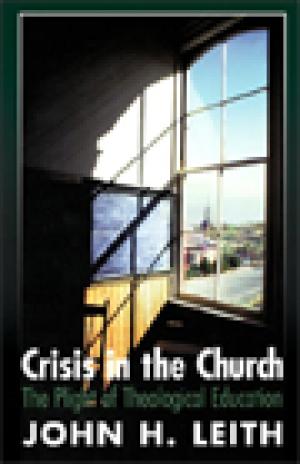
Drawing on his wealth of experience as both a seminary professor and minister, John Leith identifies and confronts the contemporary crisis in theological education. He argues that the crisis in the seminaries is interwoven with the crisis in the church, and that the secularization of educational institutions has led seminaries to move away from their primary responsibility - preparing pastors for ministry. (From the Publisher)
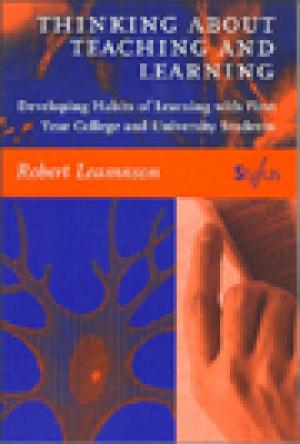
Here is a compelling read for every teacher in higher education who wants to refresh or reexamine his or her classroom practice. Building on the insights offered by recent discoveries about the biological basis of learning, and on his own thought-provoking definitions of teaching, learning and education, the author proceeds to the practical details of instruction that teachers are most interested in — the things that make or break teaching. Practical and thoughtful, and based on forty years of teaching, wide reading and much reflection, Robert Leamnson provides teachers with a map to develop their own teaching philosophy, and effective nuts-and-bolts advice. His approach is particularly useful for those facing a cohort of first year students less prepared for college and university. He is concerned to develop in his students habits and skills that will equip them for a lifetime of learning. He is especially alert to the psychology of students. He also understands, and has experienced, the typical frustration and exasperation teachers feel when students ingeniously elude their teachers' loftiest goals and strategies. Most important, he has good advice about how to cope with the challenge. This guide will appeal to college teachers in all disciplines. (From the Publisher)